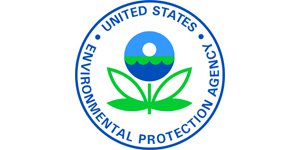
Submitted 16 May 2018 by Leslie Aiello

The Executive and Science Policy Committees of the AAPA have posted the following comment to the Federal Register in response to the Environmental Protection Agency's call for comments on the new proposed rule for data transparency in the science that can be used to inform environmental policy. We encourage members to comment individually on this important matter. Further information can be found here.
++++++++++++++++++++++++++++++++++++++++++++++++++++++++++++++++++++++++++++++++++++++++++++++++++++++++++++++
The American Association of Physical Anthropologists is the world’s largest association of physical and biological anthropologists and our journals, the American Journal of Physical Anthropology (AJPA) and the Yearbook of Physical Anthropology (YPA) are major international outlets for research into human evolution and human biological variation.
The Executive Committee of the American Association of Physical Anthropologists, including the editors of AJPA and YPA, together with AAPA's Science Policy Committee are writing in response to the Environmental Protection Agency’s proposed rule that would require the EPA “to ensure that the regulatory science underlying its action is publicly available in a manner sufficient for independent validation.” Although we favor maximum transparency in scientific research, we are in agreement with the concerns raised by the American Association for the Advancement of Science (Rush Holt, chief AAAS executive officer published April 20, 2018, https://www.aaas.org/about/policy-and-public-statements) and with the “Joint statement on EPA proposed rule and public availability of data” published online in Science magazine on April 30, 2018 ( J. Berg., P. Campbell, V. Kiermer, N. Raikhel, D. Sweet, Science 10.1126/science.aau0116).
The stringent criteria of data availability proposed by the EPA fail to enhance currently accepted standards for quality of evidence and transparency, and most certainly would exclude significant research from consideration in policy decisions. For example, epidemiological studies often contain patient information that is governed by patient privacy. In other cases funding sources may limit access to underlying data. We believe in the ideal of data transparency, but also believe that where such transparency is not justifiably possible, peer-reviewed science should not be excluded from informing policy decisions. Such exclusions will adversely affect the efficacies of those policies."
We also request an extension to the EPA’s comment period beyond the current 30 days (closing May 30, 2018). The issue is both critical and complex and we believe it should be afforded the full 90 comment period.
AAPA Officers
Leslie C. Aiello (Wenner-Gren Foundation for Anthropological Research, Emerita), President
Anne L. Grauer (Loyola U Chicago), President Elect
Steven Leigh (U of Colorado, Boulder), Vice President
Rachel Caspari (Central Michigan U), Treasurer
Graciela S. Cabana (U of Tennessee, Knoxville), Secretary
Peter T. Ellison (Harvard U), Editor, American Journal of Physical Anthropology
Lyle W. Konigsberg (U of Illinois, Urbana-Champaign), Editor, Yearbook of Physical Anthropology
Executive Committee Members at Large
Nathaniel J. Dominy (Dartmouth College)
Lisa Sattenspiel (U of Missouri, Columbia)
Robin Nelson (Santa Clara U)
Christina Torres-Rouff (UC Merced)
AAPA Science Policy Committee
Karen Strier (University of Wisconsin Madison) Co-Chair
Dennis O'Rourke (University of Kansas) Co-Chair
Omer Gokcumen (SUNY, Buffalo)
Anne Stone (Arizona State University
Copyright © 2024 American Association of Biological Anthropologists.
Site programming and administration: Ed Hagen, Department of Anthropology, Washington State University